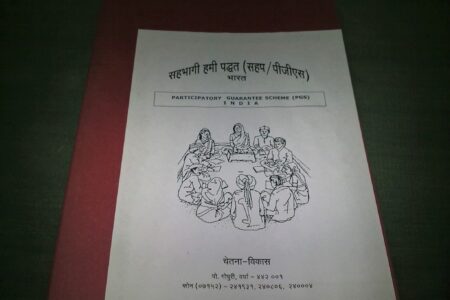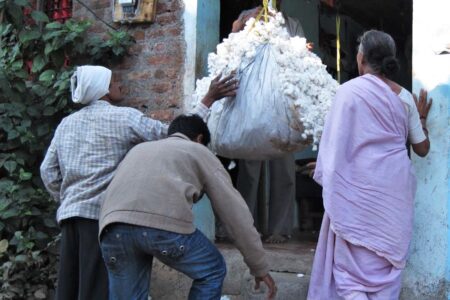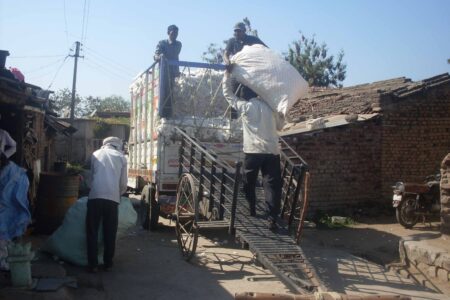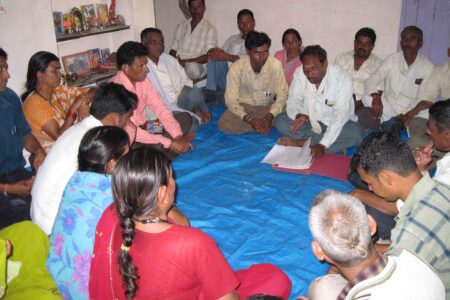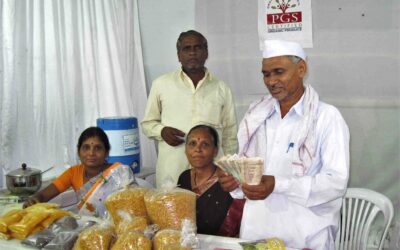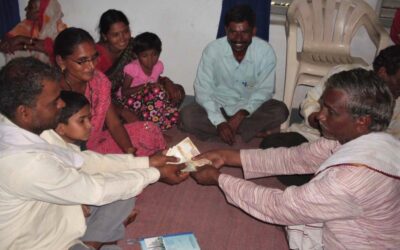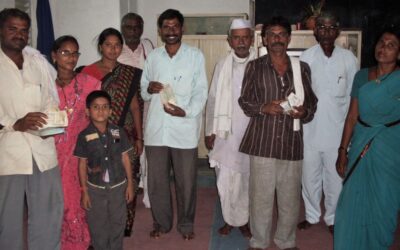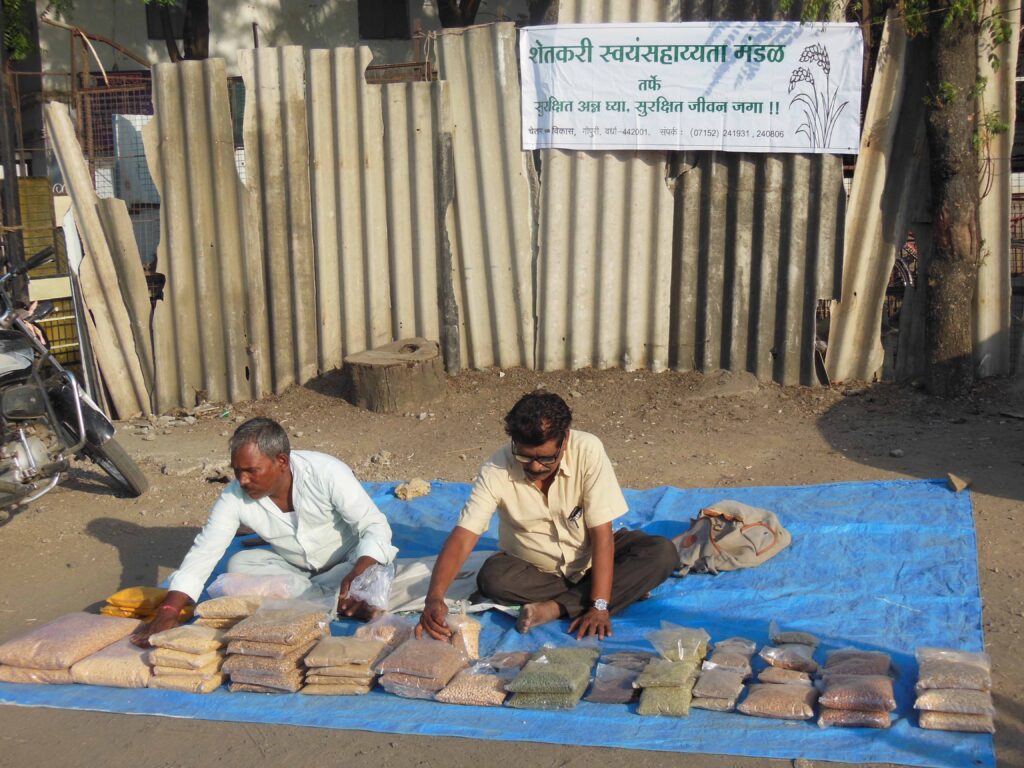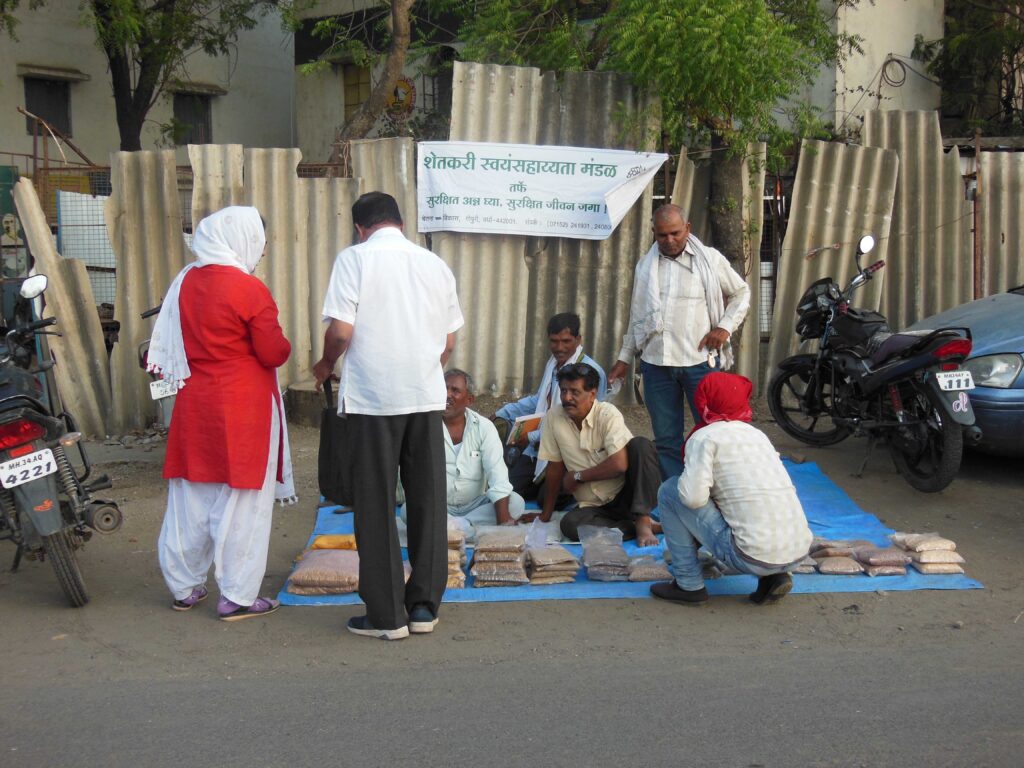Markets play a dominant role in a farmer’s life. It is the price of their agricultural produce which is the actual thorn in the flesh. Since no system is deemed to provide fair and remunerative price to agro-produce, farming as a profession is endangered. The markets exploit the farmer not only on the basis of price but also grading of their produce, during distress sale and methodology of sale. This system generally puts the farmer at the lowest rung of the ladder. Even if the system is changing, thanks to the education of farmers, they still fall victim to exploitation as they are not organized.
Self-Reliance: The Other Way Out
Chetana-Vikas initiated an alternative system of marketing agro-produce with farmers practising self-reliant farming. A committee of farmers oversees, plans, manages and executes the grading, purchase, processing and payment of the market price to all the farmers in the group. Since the produce is organic, an effort is taken to get at least 20 per cent premium price on the market price from the consumer. Direct producer-consumer linkage is promoted for edible items. The major cash crop of cotton and tur could give good returns to farmers. It is still a challenge to sell organic soya-bean.
Participatory Guarantee System (PGS) is implemented at the local village level. The local group of farmers in the village guarantee whether the product of a fellow villager is organic or not. It is the local group that takes the decision of procuring produce which ultimately is sold to the central committee. Please visit this link.
This system is low-cost, is in the farmer’s hands, and shields him or her from exploitation. Efforts are taken to train the farmers to implement the entire idea on their own for their own village as far as possible.
Other Initatives
Pilot projects were launched to take alternative marketing one step ahead. Farmers practising organic farming were asked to organize, do PGS, harvest and process their produce and directly market to the consumers in a nearby town. Handholding by Chetana-Vikas was minimalist. Directly meeting key persons and getting a place in the weekly market yard enable the farmers to have a place of their own to sell the products directly. Social Media was used extensively to reach the consumers. This experience source is very rich and it also proves that the farmers with a marketing acumen can reap higher benefits. The farmers who came forward could sell about 10 to 15 varieties of food grains and the price that they got was roughly 14% to 317% higher than the market price of that grain at that time.
Future plan – to strengthen this system with human resource development and to try out different models according to the location of the villages.


